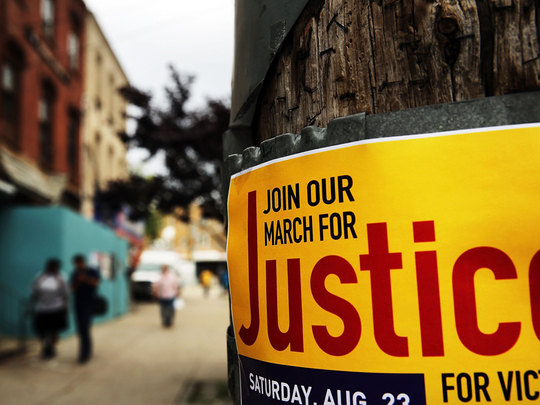
NEW YORK: Thousands of marchers are expected to protest the death of an unarmed black man who was placed in a chokehold by a white New York police officer.
The march on Saturday is being led by the Rev Al Sharpton’s National Action Network. It will begin at the street where 43-year-old Eric Garner was placed in the fatal chokehold and culminate with a rally at the office of Staten Island District Attorney Daniel Donovan, who this week sent the case to a grand jury.
Sharpton has repeatedly called Garner’s death — and the shooting death of 18-year-old Michael Brown by police in Ferguson, Missouri — a “defining moment” for the very nature of policing. Members of both Garner’s and Brown’s family are expected to join the “We Will Not Go Back” march.
Garner, an asthmatic father of six, was unarmed when he was stopped by police on July 17 for allegedly selling loose cigarettes. In a confrontation captured on cell phone video, Garner, who is black, was placed in a chokehold — an illegal tactic — by a white officer and can be heard screaming “I can’t breathe!” as he was forced to the ground.
He died a short time later. The city medical examiner ruled the death a homicide and two NYPD officers have been reassigned during the investigation.
Sharpton and other activists have demanded that Donovan bring criminal charges against the officers and have called for federal investigators to step in. But the Justice Department has signalled that it likely will wait for the local probe to conclude before making a decision.
Saturday’s half-mile long route winds itself through a heavily-minority neighbourhood, one of several in the nation’s largest city where residents have said they feel unfairly targeted by police for suspicion of crime and enforcement of low-level offences.












